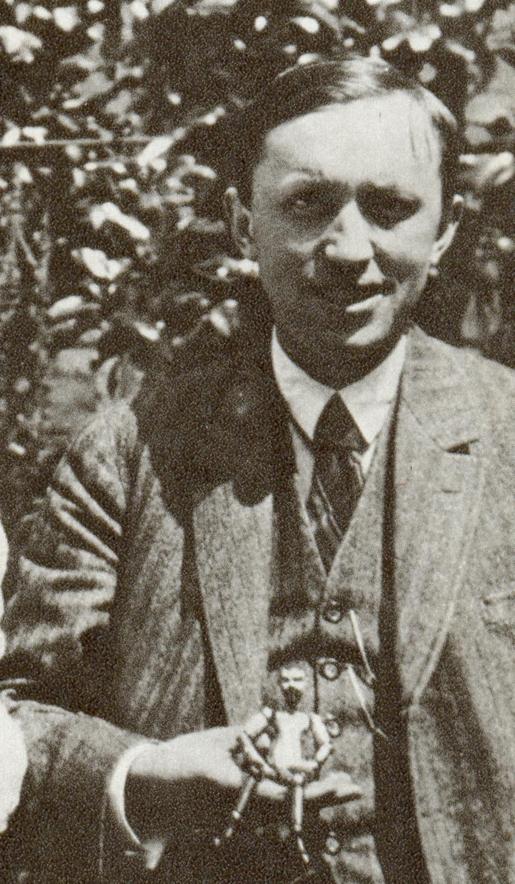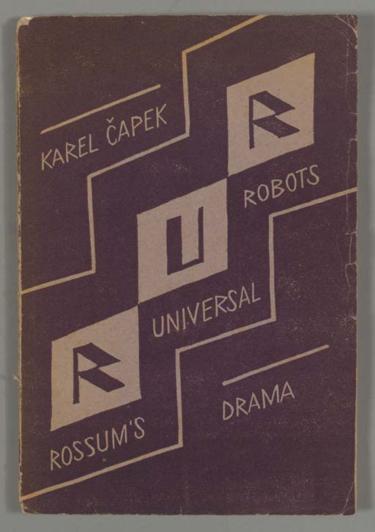Was the Word Robot First Coined in a Early 20th Century Czech Play?
Here is the latest in a series of examinations into urban legends about theater and whether they are true or false.
THEATER URBAN LEGEND: Karel Čapek coined the word “robot” in a play.
Karel Čapek was one of the notable writers in Czechoslovakia during the 20th Century, and he was especially noteworthy when it comes to science fiction, as while he likely would not be technically termed a “science fiction writer,” he surely had a science fiction-tinge to his work, which is especially notable for a guy whose most notable plays all came during the 1920s.

Čapek was a harsh critic of Nazi Germany, and devoted much of his work in the 1930s to criticizing the Nazis. He refused to leave the country when it became pretty clear that the Nazis were coming, and he died of double pneumonia in December 1938, just as the Nazis were annexing part of his homeland.
Perhaps his most famous play was called R.U.R. (Rossum’s Universal Robots), which is about, well, robots.

And it is from this play that the term “robot” (an artificial, manufactured human-like being) is derived.
So over the years, you would see stuff like (from this site):
He coined the frequently used international word robot, which first appeared in his play R.U.R. (Rossum’s Universal Robots) in 1920.
and
Etymological note: Robota is a Czech cognate of the German word arbeit (“work”), from the Indo-European root *orbh-. It is usually translated as “serf” or “forced labor” and was the name used for the so-called “labor rent” which existed in Austro-Hungarian Empire until 1848. From this word K. Čapek created the word robot = a working or serving machine.
The etymological roots pointed above are spot on, but what’s INcorrect is that it was not Karel Čapek who coined the term, but rather, his brother, Josef Čapek. Karel was set to call the machine-men laboři (from Latin labor, work), but his brother argued that roboti (translated into English as “robot”) would sound better.
To his credit, Čapek made sure to let people know that it was his brother’s word, as he lived long enough to see the word becoming a common part of the international dictionary.
While in his death, at least Karel escaped the punishment of the Germans (who were not a fan), Josef was not so lucky, and he was arrested and died in 1945 in a concentration camp (he wrote a book of poetry while in the camp, titled, appropriately enough, Poems from a Concentration Camp).
Man, this story ended up pretty depressing.
My apologies!
Anyhow, the legend is…
STATUS: Technically False but Basically True
Feel free (heck, I implore you!) to write in with your suggestions for future urban legends columns! My e-mail address is bcronin@legendsrevealed.com






Shouldn’t the headline say ‘Czech Play’ instead of ‘Polish’?
That it should! Thansk, fixed that.